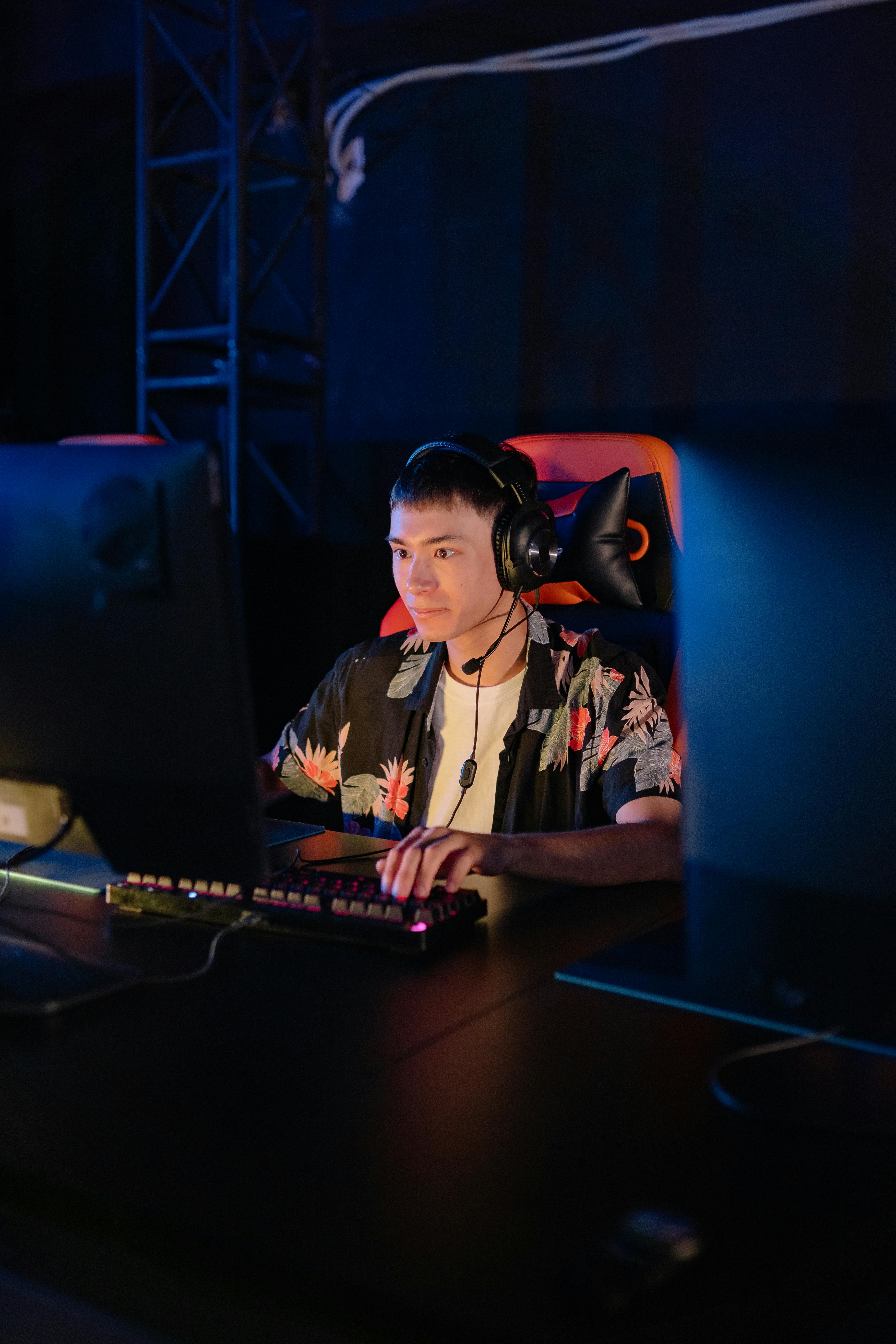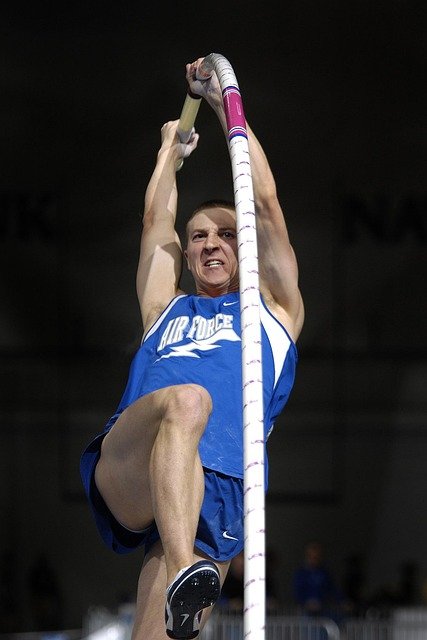Rise of Esports Physiotherapy: Safeguarding Digital Athletes
In the realm of competitive gaming, a new frontier of sports medicine is emerging. Esports physiotherapy, a specialized field dedicated to the physical well-being of professional gamers, is revolutionizing how we perceive and care for digital athletes. As the esports industry continues to grow at an unprecedented rate, the need for tailored medical support becomes increasingly evident. This article delves into the world of esports physiotherapy, exploring its origins, current practices, and the future of health care in competitive gaming.

The Birth of a New Discipline
Esports physiotherapy didn’t emerge overnight. Its roots can be traced back to the early days of competitive gaming when players first began to experience the physical toll of extended gaming sessions. As tournaments grew larger and stakes higher, the need for specialized medical support became apparent. Early pioneers in the field were often traditional physiotherapists who recognized the unique challenges faced by professional gamers.
The turning point came in the mid-2010s when major esports organizations began to invest in dedicated medical staff. Teams like Fnatic and Team Liquid were among the first to bring physiotherapists on board, signaling a shift in how the industry viewed player health. This move was driven by a growing awareness of the physical demands of professional gaming and the potential for career-ending injuries.
As the discipline evolved, practitioners began to develop specialized techniques tailored to the needs of gamers. They drew from a wide range of fields, including sports medicine, ergonomics, and occupational therapy. The result was a holistic approach to player health that addressed both immediate concerns and long-term well-being.
Today, esports physiotherapy is a rapidly growing field with its own set of best practices and specialized knowledge. Practitioners work closely with players, coaches, and team managers to create comprehensive health and wellness programs. These programs go beyond simple injury prevention, focusing on optimizing performance and extending the careers of professional gamers.
Understanding the Unique Demands of Esports
To appreciate the importance of esports physiotherapy, it’s crucial to understand the physical demands placed on professional gamers. Contrary to popular belief, competitive gaming is far from a sedentary activity. Players often maintain intense focus for hours on end, executing up to 400 actions per minute in games like StarCraft II.
This level of activity puts immense strain on specific parts of the body. Wrists, fingers, and forearms bear the brunt of repetitive motions, leading to conditions like carpal tunnel syndrome and tendonitis. The neck and back are also at risk due to prolonged periods of sitting in less-than-ideal postures. Eye strain from long hours of screen time is another significant concern.
Mental fatigue is another critical factor that esports physiotherapists must address. The cognitive demands of high-level gaming can be as taxing as any physical sport, leading to burnout and decreased performance over time. This mental strain often manifests in physical symptoms, creating a complex interplay between mind and body that physiotherapists must navigate.
The unique nature of esports also presents challenges in terms of training and recovery. Unlike traditional athletes who have clear off-seasons, professional gamers often compete year-round. This constant cycle of competition and practice leaves little time for rest and recovery, increasing the risk of overuse injuries and mental fatigue.
Esports physiotherapists must also contend with the rapid pace of technological change in gaming. New games, controllers, and setups can introduce unfamiliar physical demands, requiring practitioners to constantly adapt their approaches. This dynamic environment makes esports physiotherapy a field that demands continuous learning and innovation.
Preventive Measures and Treatment Strategies
At the heart of esports physiotherapy lies a focus on prevention. Practitioners work to identify potential issues before they become serious problems, implementing strategies to mitigate risk and promote long-term health. This preventive approach encompasses a wide range of techniques and interventions.
Ergonomic assessments are a cornerstone of preventive care in esports. Physiotherapists carefully evaluate a player’s setup, from chair height to monitor position, ensuring that everything is optimized for comfort and performance. Small adjustments can make a big difference in reducing strain on the body over long gaming sessions.
Exercise programs tailored to the needs of gamers are another key component of prevention. These routines often focus on strengthening the muscles used in gaming, improving flexibility, and enhancing overall physical fitness. Exercises might include wrist stretches, finger dexterity drills, and core strengthening workouts.
When injuries do occur, esports physiotherapists employ a range of treatment strategies. Manual therapy techniques, such as massage and joint mobilization, can help address acute issues. Modalities like ultrasound and electrical stimulation may be used to promote healing and manage pain.
Rehabilitation programs are designed to help players recover from injuries and return to competition safely. These programs often involve a gradual return to gaming, with careful monitoring of symptoms and performance. Physiotherapists work closely with players and coaches to ensure that the return to play is timed appropriately, minimizing the risk of re-injury.
Education plays a crucial role in the work of esports physiotherapists. They teach players about proper posture, the importance of regular breaks, and strategies for managing stress. This knowledge empowers players to take an active role in maintaining their health, extending the impact of physiotherapy beyond individual treatment sessions.
Technology in Esports Physiotherapy
As a field at the intersection of gaming and healthcare, esports physiotherapy naturally embraces technological innovation. Practitioners are constantly exploring new tools and techniques to enhance their ability to care for players and optimize performance.
Motion capture technology, long used in traditional sports analysis, is finding new applications in esports. By tracking a player’s movements during gameplay, physiotherapists can identify potentially harmful patterns and work to correct them. This data-driven approach allows for highly personalized interventions tailored to each player’s unique style.
Wearable devices are another area of interest for esports physiotherapists. Smartwatches and other sensors can provide real-time data on metrics like heart rate, skin temperature, and even muscle activation. This information helps practitioners monitor player health during intense gaming sessions and identify early signs of fatigue or strain.
Virtual reality (VR) is emerging as a powerful tool for both assessment and treatment in esports physiotherapy. VR environments can be used to simulate gaming scenarios, allowing physiotherapists to observe and analyze player movements in a controlled setting. VR-based exercises and rehabilitation programs offer engaging ways for players to work on their physical health outside of regular gaming sessions.
Artificial intelligence (AI) and machine learning algorithms are being developed to assist in injury prediction and prevention. By analyzing vast amounts of data from player performance, physical metrics, and injury histories, these systems can help identify players at high risk of specific injuries. This allows physiotherapists to implement targeted preventive measures before problems arise.
Telemedicine platforms are expanding the reach of esports physiotherapy, allowing practitioners to provide care and guidance to players around the world. This is particularly valuable in an industry where teams and tournaments are often spread across different countries and time zones.
As technology continues to evolve, esports physiotherapists must stay at the forefront of innovation. The challenge lies in integrating new tools and techniques while maintaining the human touch that is essential to effective healthcare.
The Future of Esports Physiotherapy
As esports continues to grow and evolve, so too will the field of esports physiotherapy. The coming years are likely to see significant advancements in both the understanding of gamer health and the techniques used to support it.
One area of future development is likely to be in personalized medicine. As our understanding of genetics and individual physiology improves, esports physiotherapists may be able to tailor their approaches even more precisely to each player’s unique needs. This could include customized training programs, nutrition plans, and even game-specific strategies based on a player’s physical and cognitive profile.
The integration of esports physiotherapy with other medical disciplines is another frontier. Collaborations with sports psychologists, nutritionists, and sleep specialists are already common, but we may see even more comprehensive, multidisciplinary approaches to player health in the future. This holistic view of athlete care could lead to breakthroughs in performance optimization and injury prevention.
Research into the long-term effects of professional gaming on the body is still in its early stages. As more data becomes available, esports physiotherapists will be better equipped to address the unique challenges faced by aging gamers. This could lead to the development of specialized programs for extending gaming careers and managing the transition out of professional competition.
The role of esports physiotherapists may also expand beyond individual player care. As the importance of player health becomes more widely recognized, these professionals could play a crucial role in shaping industry standards and regulations. This might include advising on tournament schedules, equipment standards, and player welfare policies.
Education and training programs specific to esports physiotherapy are likely to become more formalized and widespread. Universities and professional organizations may develop specialized courses and certifications, helping to standardize the field and ensure high-quality care for players.
As virtual and augmented reality technologies advance, we may see entirely new forms of esports emerge. These could present novel physical and cognitive challenges, requiring esports physiotherapists to once again adapt and innovate in their approaches to player health.
The globalization of esports presents both challenges and opportunities for physiotherapists. Cultural differences in approaches to health and wellness will need to be navigated, while the global nature of the industry may lead to increased knowledge sharing and collaboration across borders.
Challenges and Ethical Considerations
While the future of esports physiotherapy looks bright, the field is not without its challenges and ethical considerations. As the discipline continues to evolve, practitioners and industry stakeholders must grapple with a range of complex issues.
One of the primary challenges is the lack of long-term data on the health impacts of professional gaming. Unlike traditional sports, which have decades of research to draw upon, esports is a relatively new phenomenon. This makes it difficult to predict and prepare for potential long-term health issues that may arise from a career in competitive gaming.
The rapid pace of technological change in gaming also presents ongoing challenges for physiotherapists. New games, controllers, and platforms can introduce unfamiliar physical demands, requiring constant adaptation of treatment and prevention strategies. Staying ahead of these changes while maintaining evidence-based practices is a delicate balance.
The intense pressure to perform in esports can sometimes lead to conflicts between short-term competitive goals and long-term health considerations. Physiotherapists may find themselves in difficult positions when advising players and teams about injury risks and recovery times. Balancing the desire to compete with the need for proper health management is an ongoing ethical challenge.
The global nature of esports raises questions about standardization of care. With teams and tournaments spread across different countries, ensuring consistent quality of physiotherapy services can be challenging. Cultural differences in approaches to healthcare and varying regulatory environments add further complexity to this issue.
Privacy concerns are also significant in esports physiotherapy. The use of wearable devices and data analytics in player health management raises questions about data ownership, consent, and the potential for misuse of sensitive health information.
The young age of many professional gamers adds another layer of ethical consideration. Physiotherapists must be particularly mindful of the long-term implications of their treatments and recommendations when working with players who may not fully understand the potential consequences of pushing their bodies to the limit.
As esports continues to grow as a business, there may be pressure to prioritize performance over health. Physiotherapists must maintain their professional integrity and advocate for player well-being, even when it may conflict with short-term competitive or financial interests.
The potential for performance enhancement through physiotherapy techniques raises questions about fair play and the boundaries of acceptable intervention. As our understanding of the physical aspects of gaming performance improves, clear guidelines will need to be established to ensure a level playing field.
A New Frontier in Sports Medicine
Esports physiotherapy represents a fascinating frontier in the world of sports medicine. As competitive gaming continues to grow in popularity and prestige, the need for specialized healthcare support for digital athletes becomes increasingly apparent. The field combines elements of traditional sports medicine with cutting-edge technology and a deep understanding of the unique demands of professional gaming.
The evolution of esports physiotherapy reflects broader changes in how we view health, performance, and the nature of athletic competition. It challenges us to expand our definition of what constitutes an athlete and to recognize the very real physical demands of competitive gaming. As the field matures, it has the potential to not only improve the health and longevity of professional gamers but also to contribute valuable insights to the broader world of sports medicine and occupational health.
The future of esports physiotherapy is likely to be shaped by ongoing technological advancements, increased research into the specific health needs of gamers, and a growing recognition of the importance of holistic player care. As the discipline continues to evolve, it will face challenges in standardization, ethical considerations, and the need to balance competitive pressures with long-term health concerns.
For aspiring physiotherapists and healthcare professionals, esports presents an exciting and rapidly growing field of specialization. It offers the opportunity to work at the cutting edge of sports medicine, combining traditional therapeutic techniques with innovative technologies and a deep understanding of the gaming world.
As esports continues to grow and evolve, so too will the role of physiotherapy within it. By safeguarding the health of digital athletes, esports physiotherapists play a crucial role in the sustainability and legitimacy of competitive gaming as a professional pursuit. Their work not only extends the careers of individual players but also contributes to the overall growth and maturation of the esports industry.
The rise of esports physiotherapy serves as a reminder of the incredible adaptability of the human body and the healthcare professions that support it. As new forms of competition and physical challenge emerge, dedicated professionals will always rise to meet them, ensuring that athletes of all kinds can pursue their passions safely and sustainably.
In the end, esports physiotherapy is about more than just treating injuries or optimizing performance. It’s about recognizing the humanity in digital competition, acknowledging the physical and mental toll of professional gaming, and working to create an environment where players can thrive both in and out of the game. As the field continues to grow and evolve, it will undoubtedly play a crucial role in shaping the future of esports and our understanding of what it means to be an athlete in the digital age.






